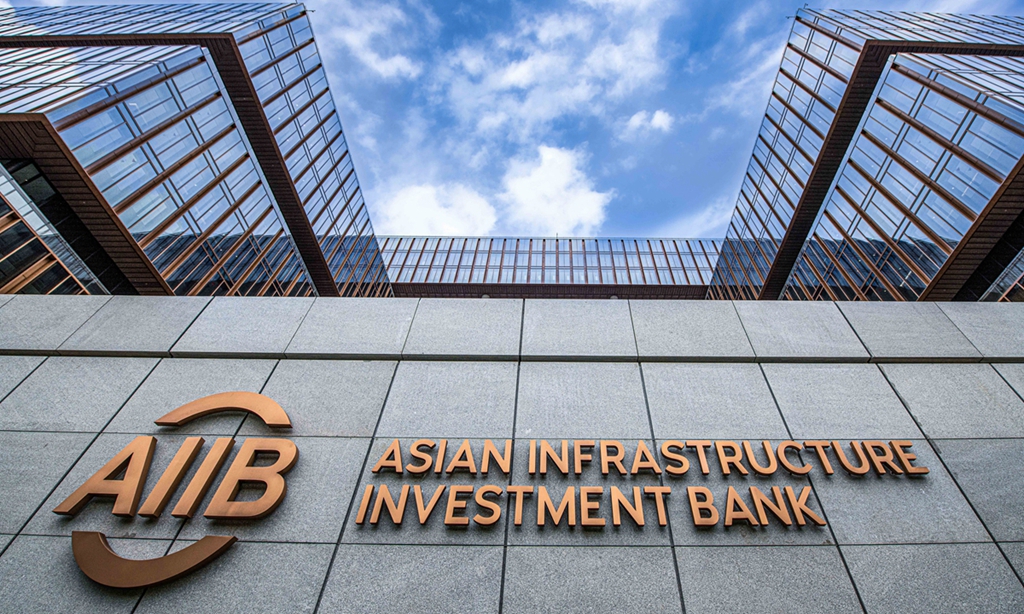Wider AIIB review to backfire against Canadian economy

Photo: AIIB
Some political elites in Canada may want to draw public attention back to Bob Pickard's groundless accusations against the Asian Infrastructure Investment Bank (AIIB) though a simple political statement, which said that Canada is expanding its review of the AIIB. Ironically, although almost half a year has passed, no evidence has been found by the Canadian side. By contrast, there are more indications that are clearly contrary to the groundless accusations, which have been noted by public opinion.
Canada announced in June that it would freeze its ties with the AIIB while investigating claims made by Bob Pickard, the bank's former global communications director, that the institution "is dominated by the Chinese Communist Party." Pickard's remarks are outright lies, made in an effort to be sensational. It appears that developments are moving in the opposite direction of what Pickard had anticipated.
El Salvador, Solomon Islands and Tanzania found themselves in the spotlight as the AIIB approved their applications during its eighth annual meeting held in September in the Egyptian city of Sharm El-Sheikh. The bank now has 109 members after its Board of Governors approved the applications. If Pickard's accusation is reasonable, why do these economies join the AIIB, and why can the AIIB attract so many economies to join? The only explanation is that Pickard's remarks are false.
AIIB members collectively account for 81 percent of the world's population and 65 percent of global GDP. Although Canada has frozen ties with the AIIB, the bank's influence is on the rise.
Since the establishment of the AIIB, efforts by some Western countries to politicize the bank have never stopped. It's precisely debates and discussions that have facilitated the world's better understanding of the AIIB.
The Chinese Embassy in Canada said China, as an important member of the AIIB, always complies with multilateral rules and processes and participates in decision-making through multilateral governance mechanisms, including the bank's council and directorate. The AIIB responded to Pickard's comments and said the bank has a diverse international team representing 65 different nationalities and members.
The AIIB is an independent multilateral development bank with solid internationally accepted governance standards that have stood the test of time. Canada cannot provide sound evidence to support Pickard's accusation. As a result, politicians in Ottawa have had to announce an expansion of their investigation and rely on political statements, rather than actual evidence, to continue hyping related issues and smearing the AIIB.
Canada's hype stems from fears and worries that China's development will undermine the current international financial order established by the West. This is just a new variation of the "China threat" theory, which has long been used by some Western politicians to contain China but ultimately hurt the Western economies in the end.
Canada joined the AIIB on March 19, 2018. The country served a two-year term as one of 12 directors of the AIIB Board of Directors, beginning in July 2018, according to media reports. It is a rash and foolish decision to freeze Canada's participation in the multilateral organization indefinitely, because AIIB projects offer commercial opportunities for Canadian firms as well as employment for some Canadians.
When Canada initially joined the AIIB, the US was heavily pressuring its allies not to join, but Canada withstood the pressure and made a choice that was based on its own interests. Bill Morneau, former Canadian finance minister, said years ago that "Canada is always looking for ways to create hope and opportunity for our middle class as well as for people around the world, and membership in the AIIB is an opportunity to do just that."
The AIIB is a multilateral development bank whose mission is to finance the infrastructure that prioritizes sustainability. If Canadian politicians continue to politicize the AIIB and use it as a tool to attack China, the Canadian economy may become the victim of Ottawa's selfishness.








